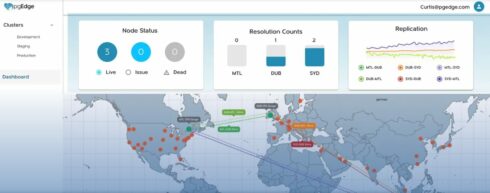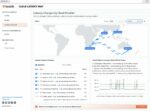
The distributed Postgres company pgEdge has announced the general availability of its pgEdge Cloud Enterprise Edition, which will make it easier for businesses to distribute their databases across multiple regions and providers.
According to the company, this offering builds upon the new capabilities added in the pgEdge Platform Constellation release, which included improvements to logical replication such as parallel processing, large object support and enhanced error handling, providing users with greater throughput, flexibility and control.
pgEdge Cloud Enterprise Edition is based on a multi-master architecture that can both read and write traffic and has conflict resolution and DDL replication to allow for more seamless replication of data across nodes. It offers dynamic cluster management, which allows users to add or remove nodes so that they can scale up or down as needed.
RELATED: PostgreSQL 17 adds performance gains, storage optimizations and more
It also offers latency-based routing to connect users to the nearest running pgEdge node. According to pgEdge, this cuts down on data latency, improves application performance, and protects against cloud region failures.
Additionally, this enterprise offering handles provisioning and management of cloud infrastructure, which ensures that each node and region gets a consistent secure configuration. Users can set this up in an intuitive visual interface, a REST API, or IaC tools like Terraform or Pulumi.
Database nodes can be deployed to any region across AWS, Google Cloud, Azure, or a company’s own cloud provider account.
“pgEdge Cloud Enterprise Edition is a significant leap forward in our mission to make it easy for developers to build, deploy and run enterprise-class distributed Postgres applications across the global network,” said Phillip Merrick, co-founder and CEO at pgEdge. “We are pleased to see early pgEdge Cloud customers such as Jobot, Kobold Metals and Enquire.ai already going into production.”








